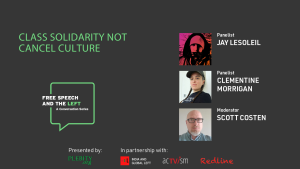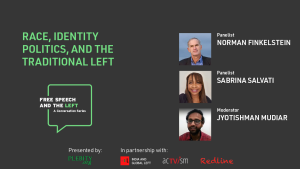“But, of course, actions are as irrelevant during cultural and religious wars as they are in nightmares. The thing at issue is buried intentions—the secret allegiances of the alienated heart, always the main threat to the theocratic mind, as well as its immemorial quarry.” Arthur Miller
 Witch hunts in various forms are one of those recurring themes of human history. One variation, known as McCarthyism, has returned recently, at least in the lexicon. The word McCarthyism has been thrown around a lot lately. Like ‘fascist’ or ‘marxist,’ it is a part of the word arsenal deployed in our current culture wars.
Witch hunts in various forms are one of those recurring themes of human history. One variation, known as McCarthyism, has returned recently, at least in the lexicon. The word McCarthyism has been thrown around a lot lately. Like ‘fascist’ or ‘marxist,’ it is a part of the word arsenal deployed in our current culture wars.
The real Joe McCarthy was born in Wisconsin in 1908 and was senator of that state for ten years, from 1947-1957. McCarthy started making waves in 1950 when he gave a speech accusing the State Department of being infiltrated by communists. He waved a piece of paper on which he claimed to have a list of the names of those individuals. He never provided proof, and just the smear itself proved to be very effective. Eventually, he widened his accusations to include the Truman administration and the U.S. Army as well as a slew of other politicians and individuals.
The movement he set off came to be known as McCarthyism, and while at its height it ruined the careers of thousands and landed many in jail for refusing to testify and ‘name names’ of so-called communists or communist ‘sympathizers’.
HUAC
The congressional hearings of the House Un-American Activities Committee (HUAC), although not formally connected with McCarthy himself, were an essential aspect of McCarthyism. It was this committee that summoned individuals to testify against friends, colleagues, acquaintances or even family members. The ostensible issue was whether they or people they knew had connections or sympathies with leftist causes or organizations. In reality the hearings were the crucible that tested the integrity and personal courage of so many of those called before it. Most people failed that moral test, and to avoid personal consequences they eagerly fed the committee names of new victims who could be summoned and tested in turn.
It is difficult or impossible to perceive the depth and strength of the social currents in which we swim until a moment comes when we have no choice but to swim against them.
Most people will allow themselves to be carried along by the prevailing opinions of their social circles. In some periods this may mean adopting relatively harmless political beliefs without question. But sometimes it may mean making a decision whether or not to participate in vicious authoritarian bullying of marginalized individuals.
It is a fact that even in the moments of strongest social pressure, some people will dare to go against the current’ to stand their ground even at great personal cost.
In 17th century Salem Massachusetts the victims were ordinary women suddenly accused of the imaginary crime of being witches. For them, the power of that social current became all too clear when their neighbors turned against them and they were hunted down, tortured and killed.
Instead of witches, the McCarthyist inquisition of the mid 20th century targeted workers, intellectuals, labor unions, private citizens and public employees. In this case the imaginary sin was treason, and Hollywood in particular with its often left leaning writers, actors or producers was a particular target. One after the other, people from the entertainment industry found themselves unexpectedly faced with the strongest moral test of their lives,
Playwright Arthur Miller said that “a character is defined by the challenges he cannot walk away from.” In 1953, he published what became one of the best known English language plays of all time, The Crucible about the Salem Witch Trials of 1692 and which he himself explicitly linked to McCarthyism:
“… by 1950, when I began to think of writing about the hunt for Reds in America, I was motivated in some great part by the paralysis that had set in among many liberals who, despite their discomfort with the inquisitors’ violations of civil rights, were fearful, and with good reason, of being identified as covert Communists if they should protest too strongly.” -Arthur Miller Why I wrote the Crucible
In 1956 Miller was called to testify in front of HUAC. He did appear but refused to name names. Because he wouldn’t cooperate, he was found guilty of contempt, sentenced to prison, hit with a fine and professionally blacklisted.

The popular western movie High Noon appeared in 1952 at the height of McCarthyism. It was explicitly written as an allegory of McCarthyism, and the screenwriter, Carl Foreman was also called to testify before HUAC. Forman said in an interview that his most common theme was “the struggle of the individual against a society that for one reason or another is hostile.”
He too refused to cooperate with HUAC, was labelled ‘uncooperative’ and blacklisted.
Author Howard Fast refused to testify when called before HUAC and received a 3 month prison sentence, and was blacklisted. While he sat in a federal prison, Fast began writing the novel Spartacus that was later made into the well known film.
The screenplay for the film version of Spartacus was written by Dalton Trumbo. Trumbo was called to testify before HUAC in 1947. When he refused to cooperate he was blacklisted and served 11 months in federal prison. He is the subject of a 2007 documentary Trumbo and a 2017 film with Bryan Cranston in the lead role.
McCarthy would eventually be censured by a Senate vote in 1954 which effectively ended his influence. Like a diesel engine running on fumes after the engine has been turned off, McCarthy continued to rail against communists and others, but his moment in the spotlight was over, and he died, a sick alcoholic, in 1957.
McCarthyism and the Red Scare ruined the left; the communist, socialist and labor movements. People became afraid to be associated with anything remotely related to a ‘leftist’ cause and for good reason. Unproven accusations, casual smears and suggestions of guilt by association were all it took to ruin someone’s career.
The left in the US was crushed during McCarthyism, and it has never recovered as a serious force in US politics, even to this day.
Recently a Twitter war erupted when a couple of popular hosts of one youtube show, TYT (the Young Turks) casually smeared the journalist Aaron Maté by saying he was ‘in the pay of the Russians’ or working for other unspecified ‘dictators’. In our current climate this accusation of being in the pay of Putin is potentially career ending for a journalist. Other observers quickly weighed in, including Glenn Greenwald, who characterized this accusation as a ‘McCarthyite smear’ and a baseless attempt to destroy Maté’s career as a journalist.
The details can all be found here.
It is true that history seems to go in cycles. Social phenomena wax and wane like a contagious virus that eventually fades away only to reappear another day in an altered but recognizable form. And today we have our own version of the same old McCarthyism, which in turn was a new version of the literal witch hunts of the past.
This latest Twitter war had one interesting side note. One very popular Youtube political commentator, Kyle Kulinski, was originally on the sidelines but was eventually pulled into the middle of the dispute. He came under considerable criticism because he didn’t initially speak out on what was happening. He claimed, in two very long videos, to have remained silent because this was a ‘personal dispute’ that he didn’t want to get in the middle of and that it was not about the issues themselves. He made a very careful distinction between speaking up on issues and speaking up in a personal dispute.
In her interview on Plebity with Sasha White, psychotherapist Stella O’Malley described her personal experience of being unjustly smeared:
“…you see people that should be your friends, that should be your comrades in distress, and they don’t stand by you and it’s a devastating feeling…everyone just silently shrinks away. It was quite tangible how everyone went quiet on me. The complaints against me were unsubstantiated and unsubstantiable…but it was very very difficult and very very stressful.”
Kulinski ignores that the act of speaking out against unfounded smears when someone is falsely accused is absolutely a political act. He may have an impeccable record on specific political issues, and he emphasises that point in his apologia videos repeatedly. The irrelevance of this defense seems lost on Kulinski and others who weighed in on social media. If you fail to speak out in solidarity against smears, in particular when they are aimed at close personal associates, friends or colleagues, you have contributed to the power of the mob. You have made it easier for the next baseless attack, and you have made it easier for the next victim to get pushed under the bus. This atmosphere of fear is itself the actual political enemy.
That is why people with a large platform or a secure personal situation, people like Kyle Kulinski, have a special responsibility to speak out. Nadine Strossen, former president of the ACLU, points it out with complete clarity in this interview on Plebity saying: “It is the “responsibility of those in secure positions to use their extra power of freedom of speech to speak in support of other people.”
No, this is not the same thing as saying that ‘silence is violence’. But it does mean that turning away in silence, in certain contexts, is a genuine statement and perhaps even an act of cowardice. Not everyone is in a position to speak out, but those that are, have, as Strossen says, a ‘responsibility’ to do so. If they lack the necessary courage to withstand the test, it’s not just personally disappointing but profoundly damaging.
Links:
The SWP (Socialist Workers Party) and McCarthyism
https://www.wsws.org/en/special/library/heritage/20.html
More Than McCarthyism: The Attack on Activism Students Don’t Learn About from Their Textbooks – Zinn Project
https://www.commondreams.org/views/2021/06/03/more-mccarthyism-attack-activism-students-dont-learn-about-their-textbooks
Joseph McCarthy and the Force of Political Falsehoods – The New Yorker
https://www.newyorker.com/magazine/2020/08/03/joseph-mccarthy-and-the-force-of-political-falsehoods
‘New McCarthyism will prove an Orwellian mistake,’ says US historian
https://www.ekathimerini.com/opinion/interviews/261462/new-mccarthyism-will-prove-an-orwellian-mistake-says-us-historian/
Why I Wrote ‘The Crucible’ – Arthur Miller, The New Yorker
https://www.newyorker.com/magazine/1996/10/21/why-i-wrote-the-crucible
 Mark White
Mark White is a co-founder of Plebity. He can be reached here.
Mark White
Mark White is a co-founder of Plebity. He can be reached here. Follow Plebity
Follow Plebity
If you appreciate this article and the work it represents please join our Patreon community and support the Free Speech Fund and help make it possible for Plebity to continue to do this work.



